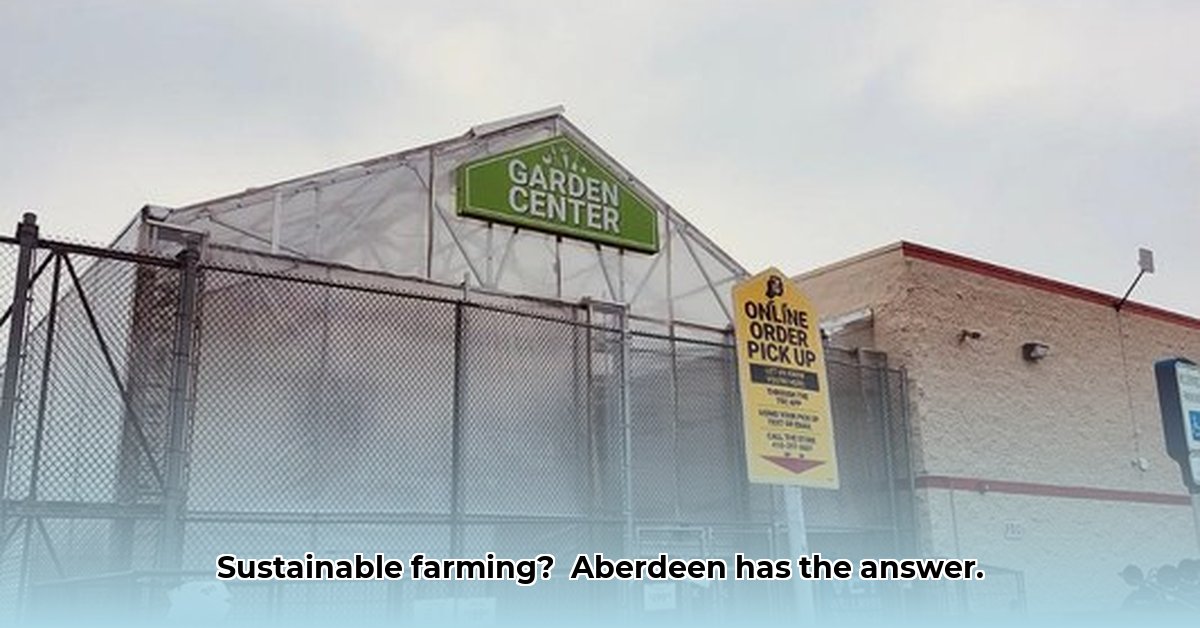
Tractor Supply Aberdeen, WA: A Local Hub for Sustainable Agriculture?
Tractor Supply Company (TSC) is a fixture in many communities, and Aberdeen, Washington, is no exception. But does this retail giant truly support sustainable agricultural practices in the local area? This article examines TSC's Aberdeen store, assessing its product offerings, evaluating its commitment to sustainability, and exploring its impact on the community. We’ll uncover both its strengths and weaknesses, offering actionable recommendations for a more sustainable future for Aberdeen’s agricultural landscape. For more information on sustainable grass options, check out this helpful resource: Sustainable Grass Seeds.
TSC's Product Offerings and Accessibility
The Aberdeen TSC offers a surprising array of products relevant to sustainable farming and gardening. Beyond tractors and parts, the store stocks organic seeds 1, compost, water-saving irrigation systems, organic fertilizers, and pest control solutions. These are readily accessible to both small-scale farmers and hobbyists, making eco-conscious choices more achievable. Supplies for building and maintaining fences, critical for pasture rotation in sustainable farming, are also available. The store even offers resources for responsible animal husbandry, such as appropriate feed and supplies. This wide selection presents a significant advantage for those pursuing sustainable practices in the Aberdeen area. However, is this wide selection enough to consider them truly committed to sustainable agricultural practices?
Sustainability Assessment: A Balanced Perspective
While TSC’s Aberdeen store boasts accessibility to sustainable products, a complete assessment requires examining the company's overall commitment. The availability of organic options is undeniably positive, empowering consumers to make informed choices. However, a major gap lies in TSC's lack of transparency regarding its sourcing and production methods. Where are these organic products sourced? What environmental standards govern their production? What is TSC’s total carbon footprint related to transportation and logistics? Without this transparency, it's difficult to definitively assess their contribution to sustainable agriculture. Their impact indirectly supports sustainable practices by providing the means for them, but their direct contribution through corporate policy and supply chain transparency is less clear.
Community Impact: Empowering or Enabling?
TSC’s Aberdeen location significantly impacts the local community by providing accessible resources for sustainable agriculture. This enhances the ability of individuals and small-scale farmers to adopt environmentally friendly practices. However, the extent of this impact depends heavily on TSC's own commitment to sustainability and the level of consumer awareness. The store's potential to foster a truly sustainable agricultural community remains partly unrealized until TSC addresses concerns about supply chain transparency and actively promotes sustainable choices through initiatives and partnerships.
Recommendations and Call to Action: A Collaborative Effort
Achieving a truly sustainable agricultural future in Aberdeen requires a collaborative effort among all stakeholders.
1. Increased Transparency from Tractor Supply: TSC should publicly release a detailed sustainability report outlining its sourcing practices, efforts to reduce its environmental footprint, and commitments to reducing carbon emissions throughout its supply chain. This transparency is crucial for building trust with consumers and fostering accountability.
2. Informed Consumer Choices: Consumers should make informed purchasing decisions, prioritizing certified organic products and those with minimal environmental impact. Actively supporting eco-friendly businesses sends a strong message to retailers, driving demand for more sustainable options.
3. Community Engagement and Collaboration: Local environmental groups and advocacy organizations should engage with TSC in open dialogue, advocating for stronger sustainability initiatives. This collaborative approach will foster a shared sense of responsibility and lead to impactful changes.
4. Educational Initiatives: TSC should partner with local organizations to offer workshops and educational programs on sustainable farming and gardening practices, empowering the community with knowledge and skills.
Conclusion: The Path Forward
Tractor Supply's role in supporting sustainable agriculture in Aberdeen presents a complex picture. While the accessibility of sustainable products is a positive step, significant improvements are needed in transparency and corporate commitment. Only through a collective effort encompassing increased transparency, informed consumer choices, effective community engagement, and educational initiatives can Aberdeen foster a truly sustainable agricultural system. The future of sustainable agriculture in Aberdeen hinges on the collaborative actions of all stakeholders.